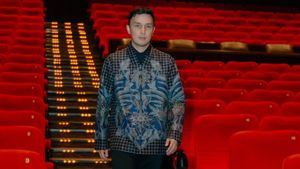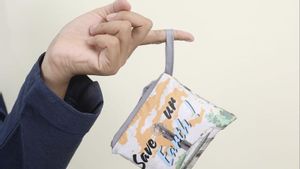YOGYAKARTA A defensive attitude is a defense mechanism that is used to overcome feelings of stress or anxiety. Apart from being tried to protect the ego, most people do not realize that they have been defensive.
The defense mechanism is important to identify to understand how to take good care of yourself, including those of adaptive nature or maladaptive nature as well as the root causes or triggers. The reason is, a defensive attitude that is not carefully considered based on awareness, feelings, and actual situations, can endanger themselves and others. With a mature defense mechanism, it will probably make you accept reality even including unpleasant facts. Let's not 'run away from reality', identification the bad side of the defensive attitude below.
Avoidance is a defensive attitude used to avoid dealing with problems. By avoiding it, a person will not feel uncomfortable without trying to understand it. Launching VerywellMind, Monday, August 21, avoidance is done by avoiding places or people who interfere with comfort in life. This method is not a continuous solution and can actually add to the stressful situation. So, the most appropriate thing is to accept reality, overcome, and solve situations that interfere with comfort directly will be very helpful.
Denial or treatment is used to avoid stressful matters. When in this situation, they refuse to accept reality. If you have just received shocking news or changed life, denial may give you time to accept a new reality. However, you need to get up immediately from this rejection in order to continue living in line with the reality you are facing.
Distortion is misinterpreting the environment because it only sees what you want to see, not what actually happened. Through the unconscious brain, a distorted person may look for supporting data to convince himself by ignoring evidence. The purpose of this defense mechanism is to protect ego and consider yourself to be right.
Salaj one type of distortion is imagination, which appears as a response to feelings, such as loneliness or inability. There are two types of imagination, adaptive and maladaptive. Adaptive imaginations, for example, when they believe in horoscopy, they only choose what they think is right. Maladaptive imagination, for example, is someone who denies the existence of viruses that make diseases that affect a person's way of maintaining his health.
With repression, a person will block painful or excessive feelings and emotions. A person may not have any control over emotions and thoughts, in contrast to conscious and intentional compressions that choose not to interact or talk about thoughts, feelings, or situations that are troubling.
By intellectualizing, people use reasoning, logic, and facts to avoid feelings or uncomfortable situations. Often, people use this defense mechanism to avoid dealing with their emotions.
Driven by feelings of difficulty and frustration, impulses are moved to people or objects that are not too threatening. For example, when someone is scolded by their superiors and has a bad day at work, they may not say anything directly to their superiors. However, they came home and shouted at their children to vent their frustration.
SEE ALSO:
In addition to the six bad sides of the defensive attitude above, many defense mechanisms occur unconsciously as an attempt to protect ego and avoid uncomfortable feelings, thoughts, or impulses. It would be very helpful if you could understand how the defense mechanism emerged as a negative reaction. That way, awareness is awakened and expands your choice of how to react when situations or feelings of stress emerge.
The English, Chinese, Japanese, Arabic, and French versions are automatically generated by the AI. So there may still be inaccuracies in translating, please always see Indonesian as our main language. (system supported by DigitalSiber.id)


















